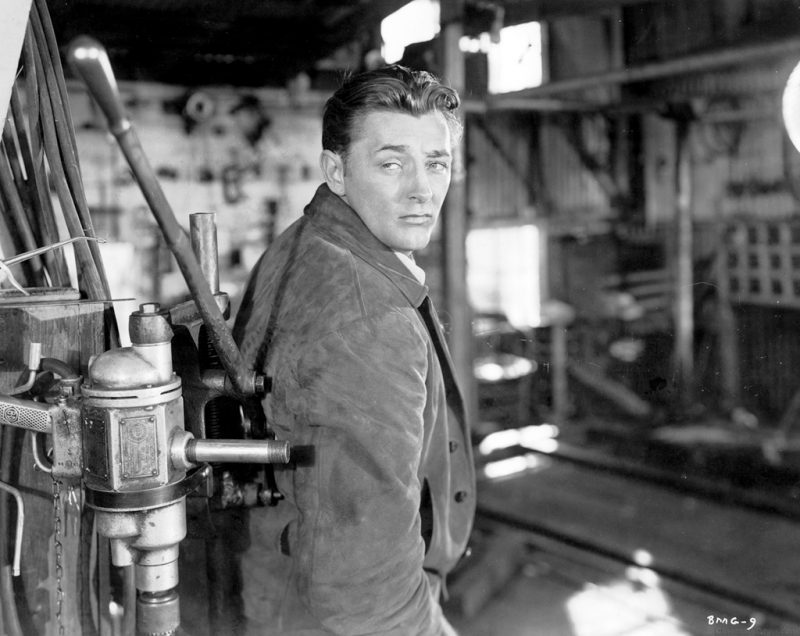Angel Face (1952)
Untying a tie, Bob’s huge hands handle the fabric like a child’s hair, slowly, lazily. Cigarette dangling. Thinking of a woman, or maybe about how he should be thinking of something else.
The Big Steal (1949)
Trying to avoid getting ID’d in Mexico, Bob turns his back to us and leans on the bar in a perfect lazy-barfly’s arch, his butt stuck out (off camera), his elbows planted, blending in with the other drinkers, and then looking backward under his hat brim as obliquely and slyly as any human being ever could.
Cape Fear (1962)
Bob, a thousand kinds of low Georgia badass, comes at lawyer’s wife Polly Bergen shirtless, like the walking threat of demonic rape. He snaps an egg apart in his fingers, and the yolk flies.
Crossfire (1947)
Bob waits for the cops, crosses his legs, somehow radiating plot-worry and Yukon coolness in the same instant. Reaching to his pocket for smokes. Pausing. Glancing over to the desk flatfoot, apparently considering the cop’s failure as a man in the company of men. Finishes taking out his cigarette.
The Friends of Eddie Coyle (1973)
A man walks into a bar. It’s Boston and it’s cold and blue and ’70s gritty, and the man, a duffel bag under each eye, is no stranger to this dark gin mill, but he looks around warily anyway; he’s lost, a mountain floating lost at sea.
The Lusty Men (1952)
Already thrown from a bull, Bob limps methodically across the empty, paper-strewn rodeo fairground, his rucksack over his shoulder. We can’t see his face, and we don’t need to.
The Night of the Hunter (1955)
In a Caligari attic bedroom, he slaps a supine Shelley Winters, and then slowly turns to a skylight, his arms out like a ballerina, his hand rising to the light, imagining in his fairy-tale brain an assault on heaven.
Out of the Past (1947)
Bob is looking at a girl in a bar. She propositions him, and without answering, not saying a word, he straightens on his stool, belts back his two fingers of tequila without taking his eyes off the tartly glazed lamb chop that is Jane Greer, and stands to leave. All of it as fluid and singular a motion as an oak allowing the wind.
Thunder Road (1958)
Bob karate-chops a bootlegging boss, knocks him out, but turns calmly toward us, as if he’d just shooed a dog away. But the rage he doesn’t let us see isn’t finished firing its plugs, and so he slams his palm down on the desk, flattening the unconscious man’s white fedora.
Where Danger Lives (1950)
“Highball?” Claude Rains, the husband of Bob’s girlfriend, asks. “Or won’t...
You have reached your article limit
Sign up for a digital subscription and continue reading all new issues, plus our entire archives, for just $1.50/month.
Already a subscriber? Sign in





